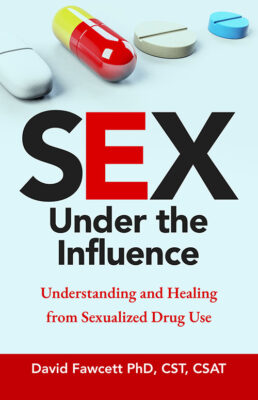Dr. David Fawcett
The experience of trauma, especially in our formative years, sets the stage for the development of many different kinds of maladaptive coping patterns, including addiction. As the development of addictive disorders becomes better understood, it becomes clear that a common core feature most addicts have in common is what is known as adverse childhood experiences. Adverse childhood experiences, also known as ACES, include various forms of abuse, whether it be physical, sexual, emotional, intellectual, or spiritual. ACES can also include growing up in a home with various household challenges, such as domestic violence, parental substance abuse, mental illness, separation or divorce, an incarcerated parent, or a sibling with a chronic illness.
We are also gaining a much better understanding of the role of neglect, whether it be emotional or physical. Many people are surprised to realize they may have had neglect in their childhood because all their material needs were met. Neglect, however, is defined as a lack of a consistent emotional connection with a parent (or other caregiver). Children need an emotional connection, also called emotional attunement, from their caregivers to develop stable, trusting, and mutually supportive relationships as adults.
The impact of ACES on children is quite astounding. It is known through research (CDC) that one out of every eight Americans has at least four or more ACES in their own life experience. This puts them at risk for a number of serious physical and mental health conditions, including 3 times the amount of lung disease, 14 times the amount of suicide attempts, 5 times the risk of depression, and 11 times the risk of developing injection drug use, just to name a few.
 Depending on their personality, inherent skills, and overall levels of resilience, children and adults react in widely varying ways to the experience of trauma. Some inherently respond with sympathetic arousal – a fight or flight response – which is an “activating” reaction characterized by adrenaline and dopamine. This is an intensity-based response which, from a neurobiological point of view, is very similar to addictive behaviors such as pornography, sex addiction, gambling, and sexualized drug use.
Depending on their personality, inherent skills, and overall levels of resilience, children and adults react in widely varying ways to the experience of trauma. Some inherently respond with sympathetic arousal – a fight or flight response – which is an “activating” reaction characterized by adrenaline and dopamine. This is an intensity-based response which, from a neurobiological point of view, is very similar to addictive behaviors such as pornography, sex addiction, gambling, and sexualized drug use.
Other individuals may respond to trauma with a response that is the opposite of fight or flight, a parasympathetic response characterized by “freeze.” Essentially, these individuals dissociate and go “cold.” This is chemically very similar to addictions that are not about intensity but rather satiation or feeling satisfied. These include addictive behaviors that help us numb our feelings, such as food addiction, binge shopping, binge television watching, and the use of drugs such as alcohol, opioids, and benzodiazepines.
No matter which kind of automatic emotional response someone has, these trauma responses increase the risk of developing addictive disorders. Over time, people increasingly use their addictive behaviors to deal with uncomfortable feelings, thus extending and replicating patterns of childhood well into adulthood. These can remain persistent and unchanged right up until attempts to heal and learn new behaviors are initiated in recovery.
Based on the role of trauma in the development of addictive disorders, it is clear that in recovery one must begin to address the underlying memories, conditions, and patterns that have evolved over the ensuing years. It is necessary, however, to proceed with caution, remembering that in early recovery we are essentially giving up our maladaptive coping mechanisms in exchange for newer skills that support both recovery and personal growth.
I have seen clients driven into unnecessary emotional distress as a result of well-meaning therapists commencing trauma therapy too early in recovery. When this happens, the newly sober person’s ability to deal with the feelings that arise as a result of the trauma therapy is severely challenged and they may very well become overwhelmed. At best, this can lead to emotional upset; at worst, it can lead to relapse with all its unpredictable consequences.
I believe that while trauma therapy is a critical component of healing from addiction, it must be carefully timed so that the individual has plenty of opportunity to create at least the foundation for new coping skills. These include resources for self-regulation of emotions, managing triggers and cravings, and the ability to ground oneself in the face of an emotional challenge. This waiting period before commencing trauma therapy may be as little as a few months into recovery or it may extend further. It is important to get the input of a mental health professional who understands trauma and trauma therapy (and also addiction and addiction recovery) for decisions about when to commence this important work.
It is also useful to remember that any good trauma therapy includes both a cognitive component and a somatic component. (A somatic component is one that addresses aspects of trauma held in the body.) Trauma embeds itself into our neurological system, and talk therapy alone is not adequate to address and discharge these reserves of traumatic experience.
A trauma therapy like EMDR (Eye Movement Desensitization and Reprocessing) includes a somatic component, as do others, some of which focus explicitly on helping the client locate, identify, and interpret body reactions. This helps the individual start to recognize and respond to essential information that their body is giving them about what is happening, including situations where they may not be cognitively aware but their body is sending them clear signals.
Adverse childhood experiences and other traumatic injuries play a key role in the formation of addictive disorders, so any prolonged recovery must incorporate some elements of trauma therapy. While essential, it’s important to remember the importance of timing when introducing trauma treatment into the recovery process.
**********
If you or someone you care about is struggling with porn addiction, help is available. Seeking Integrity offers inpatient treatment for sex and porn addicts, as well as low-cost online workgroups. At the same time, SexandRelationshipHealing.com offers a variety of free webinars and drop-in discussion groups, podcasts, and more.


 Anal Beads
Anal Beads Anal Vibrators
Anal Vibrators Butt Plugs
Butt Plugs Prostate Massagers
Prostate Massagers
 Alien Dildos
Alien Dildos Realistic Dildos
Realistic Dildos
 Kegel Exercisers & Balls
Kegel Exercisers & Balls Classic Vibrating Eggs
Classic Vibrating Eggs Remote Vibrating Eggs
Remote Vibrating Eggs Vibrating Bullets
Vibrating Bullets
 Bullet Vibrators
Bullet Vibrators Classic Vibrators
Classic Vibrators Clitoral Vibrators
Clitoral Vibrators G-Spot Vibrators
G-Spot Vibrators Massage Wand Vibrators
Massage Wand Vibrators Rabbit Vibrators
Rabbit Vibrators Remote Vibrators
Remote Vibrators
 Pocket Stroker & Pussy Masturbators
Pocket Stroker & Pussy Masturbators Vibrating Masturbators
Vibrating Masturbators
 Cock Rings
Cock Rings Penis Pumps
Penis Pumps
 Wearable Vibrators
Wearable Vibrators Blindfolds, Masks & Gags
Blindfolds, Masks & Gags Bondage Kits
Bondage Kits Bondage Wear & Fetish Clothing
Bondage Wear & Fetish Clothing Restraints & Handcuffs
Restraints & Handcuffs Sex Swings
Sex Swings Ticklers, Paddles & Whips
Ticklers, Paddles & Whips

















